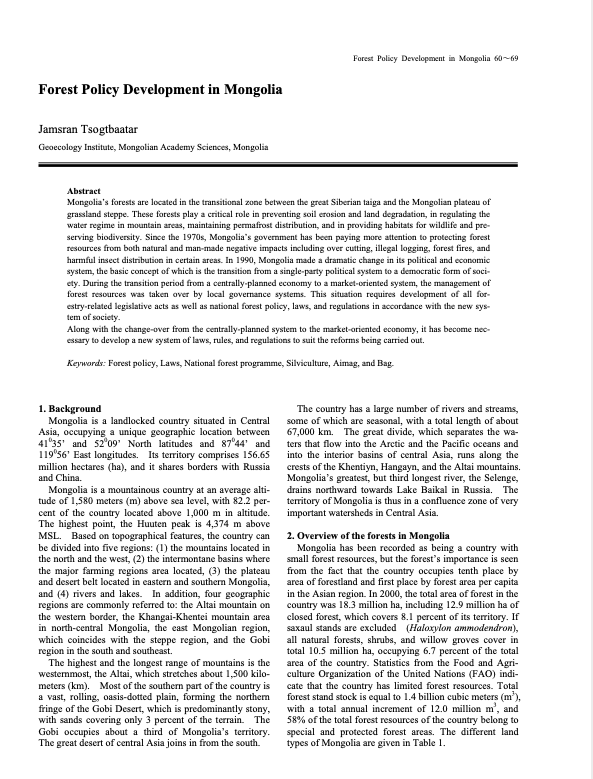Balancing agricultural development and deforestation in the Brazilian Amazon
Since the 1970s, federal policies promoting migration and encouraging agricultural development of large farms, logging, and ranching have led to the deforestation of vast areas of the Amazon rainforest.Though these policies have largely been replaced, deforestation continues. What effects do current macroeconomic and regional policies and events have on deforestation and on the well-being of settlers on the agricultural frontier?
Reaching sustainable food security for all by 2020
"As part of its 2020 Vision for Food, Agriculture, and the Environment Initiative, the International Food Policy Research Institute (IFPRI) has articulated a vision of what the world should look like in 2020: it should be a world free from poverty, hunger, malnutrition, and unsustainable natural resource management.
Land Degradation Assessment in Drylands - LADA project
This report contains the proceedings of the first stakeholders meeting held by the Land Degradation Assessment in Drylands (LADA) project, which aims to develop and validate quantitative reproducible assessment methods to make them widely available and to demonstrate and build capacity for their application in teh dryland areas of the world.
Forest Policy Development in Mongolia
Mongolia’s forests are located in the transitional zone between the great Siberian taiga and the Mongolian plateau of grassland steppe. These forests play a critical role in preventing soil erosion and land degradation, in regulating the water regime in mountain areas, maintaining permafrost distribution, and in providing habitats for wildlife and preserving biodiversity.
Ownership, control and access: land tenure and land degradation in Northern Togo
Traditional land tenure systems in Togo have been undermined but not destroyed by the introduction of private property and ‘modern’ tenure reform. However, confusion over land tenure issues has proved to be an obstacle to efforts to promote efficient resource management and to combat desertification.
Development pathways and land management in Uganda
This paper investigates the patterns and determinants of change in livelihood strategies ("development pathways" ), land management practices, agricultural productivity, resource and human welfare conditions in Uganda since 1990, based upon a community- level survey conducted in 107 villages.
Tribes, state, and technology adoption in arid land management, Syria
Arid shrub-lands in Syria and elsewhere in West Asia and North Africa are widely thought degraded. Characteristic of these areas is a preponderance of unpalatable shrubs or a lack of overall ground cover with a rise in the associated risks of soil erosion. Migrating pastoralists have been the scapegoats for this condition of the range. State steppe interventions of the last forty years have reflected this with programs to supplant customary systems with structures and institutions promoting western grazing systems and technologies.
Farm-level benefits to investments for mitigating land degradation: empirical evidence from Ethiopia
The unfinished agenda: perspectives on overcoming hunger, poverty, and environmental degradation
This book brings together briefs and articles generated by the 2020 Vision initiative that remain highly relevant to the ongoing dialog and debate and, given the nature of the topics addressed, are likely to remain so for some time to come.
Changing Farmers' Land Management Practices in the Hills of Nepal
This paper sheds light on changing farmers' land management practices in two mountain watersheds, with and without external assistance, in the western hills of Nepal. Information used in the analysis were obtained through a survey of 300 households, group discussion, key informant interviews, and field observation conducted during April–September 1999.











